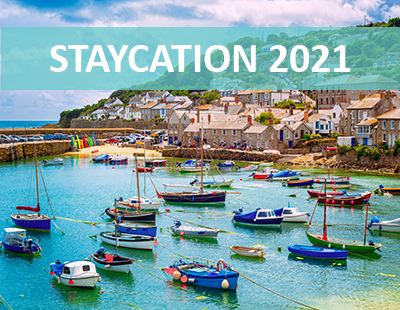It is perhaps no surprise then, that enquiries to The Cumberland’s holiday let mortgage team increased by 39% the week after the announcement. Meanwhile, the latest data from Supercontrol shows bookings for UK holiday let cottages increased by 90% in July 2020 compared to July 2019.
Whilst the climate is attractive at the moment, market conditions can change so it’s vital to be sure it is the right decision for you and your family. So where do you start?
We have compiled our experts’ top considerations so that you can move with pace and vigilance to make an informed decision and capitalise upon this rare opportunity.
Why the market is ripe for holiday let purchasing
Through the darkness of the Covid-19 pandemic, a silver lining has emerged for the holiday let market in the form of unique and unprecedented buying conditions. Chancellor Rishi Sunak’s stamp duty holiday announcement earlier this year – which could save second home buyers up to £15,000 - combined with holidaymakers’ concerns around travelling abroad is breathing new life into the UK ‘staycation’ sector.
This has been underlined again recently with further changes to the UK’s safe countries list and given the situation is an ever-changing one with regards foreign travel, holidaymakers are having to make a calculated risk about whether to travel abroad.
In late July, bookings with Pitchup.com were double last year’s high for a single day. Similarly, bookings with Haven were up 96% year-on-year while Hoseasons is reporting tgat bookings for 2021 are up by a third on normal levels. The firm’s cottage break bookings are also up 223% over the last month compared to the same period in 2019.
Unsurprisingly, then, UK tourism chiefs are urging Britons to stay safe, avoid unnecessary risks and book their 2021 staycations as soon as possible if they are to secure suitable accommodation.
All these factors are creating the ideal opportunity to purchase a holiday let property. However, this isn’t without its own risks. So before you dive online to review properties, we’ve put together the following key questions for any prospective holiday let investor to ask themselves:
Do I fit the holiday let owner/manager profile?
Every holiday let investor is unique but, the most successful ones also have a lot in common. If you think you could join the growing number, ask yourself the following questions to establish if it’s right for you:
Costs – will your incomings cover your outgoings and provide an income?
It’s vital to ensure the income from letting your property covers your outgoings. Example costs include accounting, legal advice, valuation, VAT, cleaning, repairs, utilities, insurance and monthly mortgage payments.
Do you have any contingency savings or disposable monthly income, should you need to support the business in leaner times?
Can you finance your deposit?
Typically, lenders for holiday let mortgages require a minimum of 25% deposit. Consider how you will raise the required capital along with the additional costs outlined above.
Is the local market buoyant?
Do your research. If your chosen location is popular for staycationers, businesspeople, walkers or honeymooners, then that’s a great foundation for starting your business. Equally, what local amenities and facilities are there as this will help you to market your property.
Will you have much competition?
Identify the local competition and their strengths and weaknesses, price points and features. Perhaps even book an overnight stay to gain a thorough understanding of how you might differentiate yourself.
Will you manage the property yourself, or through an agency?
There are advantages and disadvantages of working with an agency. For example, an agency can free up your time as your bookings are managed by them. They can also help with your marketing. However, agency fees will add to your ongoing costs.
Business planning – what are your short, medium and long-term goals?
A simple SWOT (strengths, weaknesses, opportunities and threats) analysis can be a helpful tool to help you to plan your approach, and to think about contingency planning to deal with any potential threats. You could ask yourself questions like:
-
Why would I be good at this?
-
What are my potential weaknesses?
-
What opportunities are there in the market, or with a particular property?
-
Can I foresee any threats to the investment, and what can I do to help mitigate these?
Can you bulletproof the business?
Many holiday let owners will tell you the significant impact Covid-19 has had on their business, and while the British staycation market is starting to flourish, there were some challenging times they had to overcome first. As such, are you in a position to bulletproof the business and activate robust contingency plans for quieter seasons of the year, or should the UK enter another lockdown, for example?
The Cumberland customer, Jamie Cowan, who owns a portfolio of seven holiday let properties in Dumfries and Galloway, explains the impact of the unexpected: “No amount of planning could have prepared us for the impact of the coronavirus lockdown. Overnight, £50,000 worth of bookings were lost. However, with the right support from our building society, we were able to obtain a mortgage holiday, which has been a lifeline and has ensured our survival. Bookings are now flooding in as the staycation becomes increasingly popular, so we definitely see light at the end of the tunnel.”
What are the legal considerations?
There are some legalities to consider before taking the final step into holiday let ownership. For example:
Short-term furnished letting regulations
This means your property must be available for letting for 210 days per year and let for a minimum of 105 days per year in order to qualify as a small business and receive the relevant tax advantages.
Planning permission
Does your preferred property require planning permission? Be aware that different local authorities approach this differently.
Restrictions on the property usage
If the property can only be used for holiday lettings, some mortgage lenders will not lend because the property can only be sold on to investors rather than owner occupiers.
Pause for thought
Through your business analysis and planning, it is vital that you gather as much insight, information and expertise before taking the leap. As experts in the market, we are able to offer support to those considering a holiday let purchase, to help ensure you are in a position to make a fully informed decision. Find out more at www.cumberland.co.uk/holiday-let
*Grant Seaton is senior business lending manager at The Cumberland, the 10th largest building society in the UK









.png)










Join the conversation
Be the first to comment (please use the comment box below)
Please login to comment